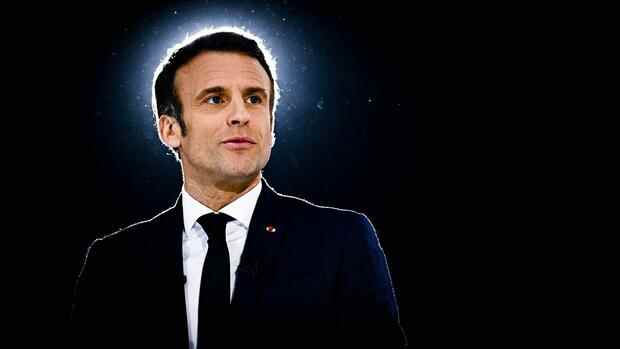French voters saved Europe from the biggest setback since Brexit with the confirmation of Emmanuel Macron as President. The importance of this in itself can hardly be overestimated at a time when Europe is confronted with an open war of aggression on its eastern flank.
The continent needs leaders with leadership now – and Macron is undoubtedly such a statesman. His European enthusiasm is tireless, and he radiates far beyond the French borders.
That is the positive part of the message, but there is also a negative one: the mere fact that his election victory was in jeopardy given the radical alternatives, that well over half of the votes cast by the French in the first ballot went to the right and left fringes and that a Marine Le Pen that is as xenophobic as it is anti-European, with over 40 percent of the votes, must be regarded as established – all of this shows once again that the struggle between free-democratic and authoritarian-nationalist forces is increasingly being fought within western democracies.
Marine Le Pen, who actually thought two out of five French the better choice, in the Élysée Palace? That would be a scenario that Vladimir Putin and Xi Jinping could not have imagined in their wildest dreams. And that’s just one of many reasons why Macron’s victory is so immensely important. In fact, he is the first French president in 20 years to win re-election.
That will strengthen his already not exactly underdeveloped sense of mission even more. Macron is a talented rhetorician, he thinks big and saw the urgent need for Europe to strive for geopolitical sovereignty well before the outbreak of the Ukraine war.
Top jobs of the day
Find the best jobs now and
be notified by email.
In this respect, he also represents a counterpoint to Olaf Scholz. The Chancellor is following the German tradition – as his hesitant crisis management in the Ukraine crisis has shown once again – economic superpower yes, but please no overly great geopolitical ambitions. Because that could hurt business.
Lack of clarity from the Chancellor
The “turning point” promised by the chancellor is not followed by any policy that goes beyond typical German economism. Instead of orientation, Scholz provides the citizens with an emotional dried fruit diet. Instead of clear announcements, the chancellor’s office produces meaningless, convoluted and endless sentences that overwhelm even the most trained professionals in the field of text exegesis.
You don’t have to be a fan of pathos to see that Macron’s style of government contrasts pleasantly. With his hands-on and ambitious manner, the president is perhaps the last guarantor for the minimum of unity and strength that Europe so urgently needs in the epoch-making confrontation with Moscow. Berlin, meanwhile, leaves the impression that the primary concern is to enable the increasingly unscrupulous dictator to withdraw face-saving – and not to resolutely defend the legitimate and existential interests of the Ukrainians.
The Ukraine war is also a test of Europe’s willingness to join forces to bear high economic costs in the short term to safeguard long-term interests – such as a European security architecture that brought relative prosperity and peace to the continent for almost 80 years.
More on the France election:
Scholz looks at the short-term effects of an energy boycott and warns of the devastating consequences for the German economy. Macron, who alongside Joe Biden is now the most important opponent of the Russian President, places much greater emphasis on the long-term political and economic risks should Putin prevail with his imperial policies.
French President Emmanuel Macron as master builder of the EU. His re-election causes euphoria, but conflicts remain.
(Photo: Frank Hoppmann)
The French President is reluctant to openly criticize the federal government. He knows how important a common line with Berlin is for the further integration steps of the European Union. In fact, the conflicts will not diminish with Macron’s re-election: How much financial solidarity does Europe need to ensure its unity? How much government debt can be allowed without the financial markets losing confidence in the monetary union? How much sovereignty do nation states like proud France have to give up in order to implement a common security policy worthy of the name?
This is the tension in which the two largest economies in Europe operate. The fact is that the European project is more important than ever in times of nationalist, protectionist and hegemonic great powers. An election victory for Le Pen would have caused great damage to the “normative project” (Heinrich-August Winkler). Le Pen prepared the end of the EU as a legal community.
Like the Brexiteers and the Trumpists, she wanted control back. Le Pen has failed – for the time being. In the coming years, Macron can continue to work on his project to create “a democratic Europe that is resilient both internally and externally”. His victory is a necessary but far from sufficient condition for the European Union to regain strength.
More: EU order worth billions to British Telecom under scrutiny – letter of protest to von der Leyen
